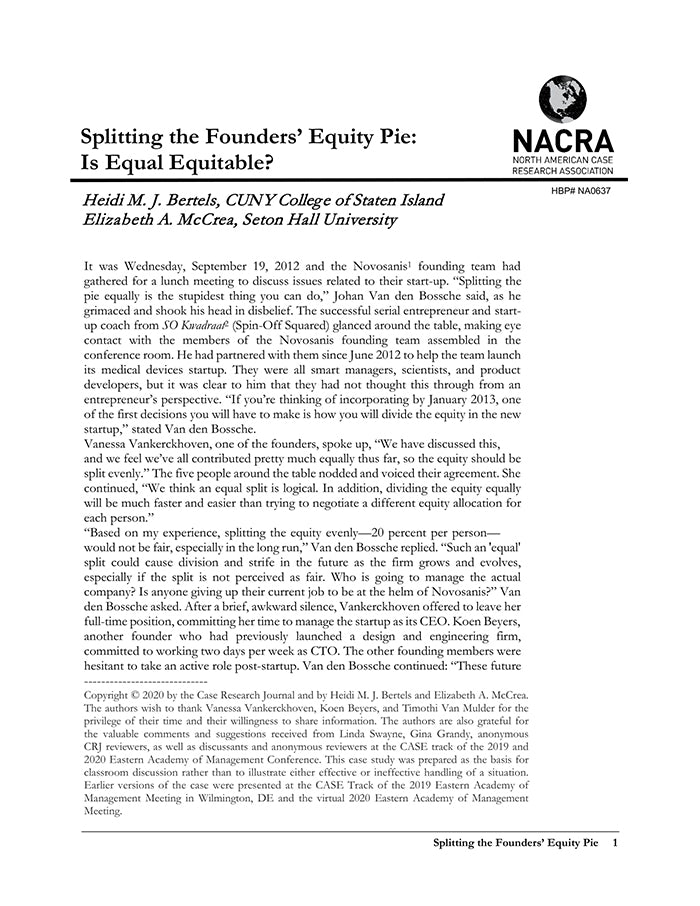Splitting the Founders' Equity Pie: Is Equal Equitable?
受取状況を読み込めませんでした
Negotiating the initial equity split among founders is not as straight-forward as it might first appear. In this case, five Belgians launch Novosanis, a university spinoff, to commercialize two promising medical devices: VAX-ID and Colli-Pee. VAX-ID is an injection device suited for highly accurate and painless drug delivery effective at low volumes. Colli-Pee provides a non-invasive method of detecting Human Papilloma Virus (HPV) and other infectious diseases. The Novosanis founding team includes two scientists who proposed the original ideas, two project coordinators who managed the R&D process at the university, and an industrial partner who provided technical support. The team's first inclination is to split the equity evenly, to reflect their relatively equal contributions prior to the spinoff. It becomes clear however, that if future contributions are included in the decision, an equal split might actually be unfair and counterproductive. One founder agrees to be the spin-off's full-time CEO and another consents to be part-time CTO. The remaining founders choose not to take active roles post start-up. The team has an important decision to make: How should they divide the shares of Novosanis to compensate prior contributions, while also supporting the venture going forward? Would equal be fair?
【書誌情報】
ページ数:14ページ
サイズ:A4
商品番号:HBSP-NA0637
発行日:2020/6/30
登録日:2021/2/19


